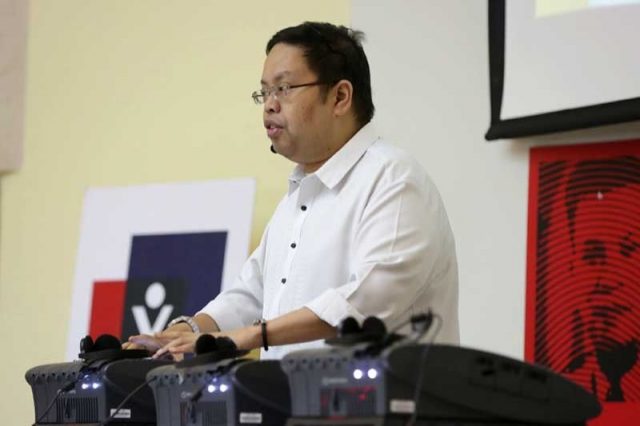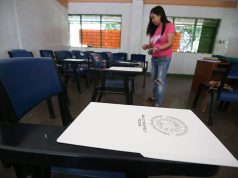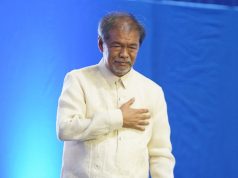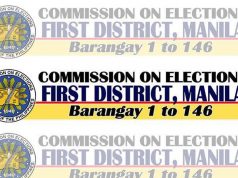
Premature campaigning is once again rearing its ugly head months before the May 2019 elections and the actual campaign period have started exploiting a legal loophole.
The Senate Committee on Electoral Reforms and People’s Participation on Friday approved a bill that aims to ban candidates from campaigning from the time their certificate of candidacy is filed until the prescribed campaign period.
The bill reportedly will amend Section 15 of Republic Act 8436 which defines who are considered ‘candidates.’
Under the law, a person who has filed his COC will only be considered a ‘candidate’ once the campaign period commences. Thus, those who have filed candidacies can be immediately penalized for committing any act prohibited by the Omnibus Election Code and other Commission on Election regulations.
COMELEC, voters take notice
COMELEC Spokesperson James Jimenez took notice of those who have filed COCs engaging in more campaigning several months before the start of the campaign period.
Nearly all major senatorial candidates openly campaigning now – taking full advantage of the premature campaigning loophole. In case you missed it. #NLE2019
— James Jimenez (@jabjimenez) October 24, 2018
In a tweet, he posted the relevant time periods for the election season to remind candidates and voters alike.
Baka nalimutan:
> Election Period: 13 January to 12 June 2019
> Campaign Period (National): 12 February to 11 May 2019
> Campaign Period (Local): 29 March to 11 May 2019.
>> Bawal mangampanya sa Maundy Thursday at Good Friday. #NLE2019
— James Jimenez (@jabjimenez) October 24, 2018
Voters have also started reacting to increasing publicity from those who have filed their COCs, even as the public begins to accept the legality of ‘premature campaigning.’
Premature campaigning at the expense of taxpayers’ money.
— LloydG (@maximumwarp10) October 23, 2018
No law against premature campaigning. No law even after filing of COC. They will be sanctioned only once we enter the election period. Loopholes. https://t.co/lKjgfxmhjH
— Albert C. Lim (@limbertqc) October 17, 2018
Premature campaigning is not a crime.
— Joseph Nuñez (@TrancetheRapper) October 17, 2018
Various items bearing the images of public figures who would eventually file their candidacies were reported as early as April 2018, more than a year before the 2019 midterm elections.
COMELEC Election Officer Gregorio Bonifacio in an interview with Interaksyon that month confirmed that the prospective candidates who already were being endorsed by various groups and whose images had appeared on different kinds of paraphernalia could not be penalized as they had yet to filed their candidacies.
The Supreme Court in July 2018 also emphasized that ‘premature campaigning’ was no longer a prohibited act under current election jurisprudence, following several reported acts of premature campaigning at the time.
The high court in its 2009 decision in Penera v.COMELEC ruled that campaigning before the prescribed campaign period was no longer an offense.
“The law is clear as daylight — any election offense that may be committed by a candidate under any election law cannot be committed before the start of the campaign period,” wrote former associate justice Minita Chico-Nazario in her ponencia.
Bills to penalize premature campaigning were previously submitted by Senators Richard Gordon and Leila de Lima.
Concerns with overspending
COMELEC officials as well as voters have also voiced concern over other ways candidates can exploit loopholes in the current election laws, such as overspending.
COMELEC Spox. James Jimenez admitted to @iamkarendavila that there are a lot of loopholes in our election laws and candidates could violate them and get away with it (e.g. premature campaigning, overspending, etc.).
Sad.
— doki #BoycottJollibee (@tzodofenshmirtz) October 12, 2018
Section 13 of RA 7166 or the Synchronized Election Law provides a limit to the spending limit for candidates and political parties.
Presidential and vice-presidential candidates are allowed to spend P10 per person while other candidates are allowed to spend P3 for every voter currently registered in the constituency where he filed his certificate of candidacy.
Independent candidates under the second category are allowed to spend P5 per voter.
Registered political parties are likewise allowed to spend P5 per voter for their campaigns.
Both overspending and failure to submit a computation of the total campaign expenditures are penalized under the current election laws, but the ambiguities in the laws have raised worries that some candidates and political parties may not have submitted accurate computations in the past.
The House of Representatives in May 2018 approved a bill that will raise the campaign spending limits for both candidates and parties.









